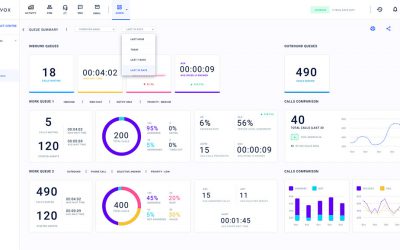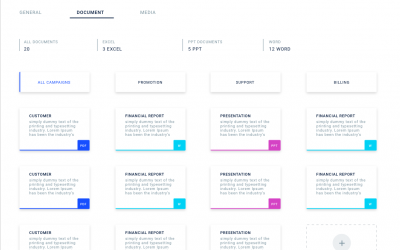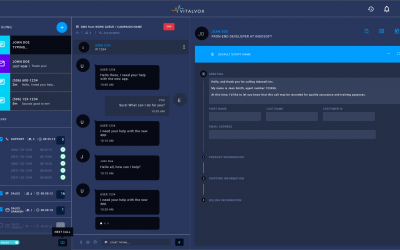Introduction
In today’s fast-paced customer service landscape, building a learning culture in contact centers is crucial for staying competitive. A strong learning culture not only drives better performance but also fosters innovation and boosts employee retention. In this blog, we’ll explore why cultivating a learning environment is essential and provide practical steps to implement it in your contact center.
The Importance of a Learning Culture
Enhances Employee Performance
A learning culture in contact centers empowers employees with the skills and knowledge they need to excel in their roles. When agents continuously learn and improve, they handle customer interactions more effectively, leading to higher satisfaction rates. Moreover, ongoing training helps employees adapt to new technologies and evolving customer expectations, ensuring your contact center remains agile and competitive.
Drives Innovation and Adaptability
Encouraging a culture of learning inspires employees to think creatively and embrace new approaches to problem-solving. In an environment where learning is valued, agents feel more comfortable sharing ideas that can improve processes, tools, and customer interactions. This innovation mindset helps your contact center quickly adapt to changes in the market, ultimately leading to better service delivery and operational efficiency.
Boosts Employee Retention and Satisfaction
One of the biggest challenges in contact centers is high turnover rates. A learning culture addresses this by making employees feel valued and invested in. When agents see that their development is a priority, they are more likely to stay with the company longer. Continuous learning opportunities also contribute to job satisfaction, as employees feel more competent and confident in their roles.
How to Build a Learning Culture
Start with Leadership Commitment
Building a learning culture begins at the top. Leaders must actively support and participate in learning initiatives to set the tone for the entire team. When management prioritizes learning, it signals to employees that their growth matters. Leaders can demonstrate this commitment by attending training sessions, sharing insights from industry trends, and recognizing employees who embrace learning.
Implement Continuous Training Programs
Regular training should be a cornerstone of your contact center’s learning strategy. Instead of one-off sessions, focus on ongoing learning through workshops, webinars, and on-the-job training. Tailor these programs to address specific skills gaps and provide opportunities for employees to learn new technologies or customer service techniques. Incorporating micro-learning—short, focused training modules—can also keep learning engaging and manageable.
Leverage Technology for Learning
Technology plays a critical role in fostering a learning culture in contact centers. Utilize e-learning platforms, interactive modules, and virtual training sessions to provide accessible and flexible learning options. AI-driven tools can personalize learning paths based on individual needs, making the training more relevant and effective. Furthermore, integrating knowledge bases and chatbots can support agents by providing instant access to information during customer interactions.
Encourage Peer Learning and Collaboration
Learning doesn’t have to come solely from formal training programs. Encourage peer learning through mentoring, team huddles, and knowledge-sharing sessions. Creating spaces for employees to share their experiences and tips fosters a collaborative learning environment. This not only builds team cohesion but also allows agents to learn from each other’s successes and challenges.
Measure and Celebrate Learning Achievements
Tracking the impact of learning initiatives is vital to maintain momentum and refine your approach. Use key performance indicators (KPIs) such as customer satisfaction scores, average handling time, and employee engagement levels to assess the effectiveness of your learning culture. Celebrate milestones and achievements, whether it’s an employee completing a certification or a team reaching a performance goal, to motivate continued participation.
Overcoming Challenges in Building a Learning Culture
Addressing Time Constraints
One common challenge in contact centers is the limited time available for training due to high call volumes. To overcome this, integrate learning into the daily workflow with short, on-demand modules that agents can complete during slower periods. Additionally, scheduling regular training blocks or rotating shifts can ensure that learning doesn’t get sidelined by operational demands.
Ensuring Relevance and Engagement
To keep employees engaged, it’s crucial that training content is relevant and aligned with their day-to-day tasks. Seek feedback from agents about what skills they want to develop and tailor your programs accordingly. Incorporate interactive elements like quizzes, gamification, and real-world scenarios to make learning more engaging and applicable.
Conclusion: Building a Learning Culture
Building a learning culture in contact centers is more than just a trend; it’s a strategic approach to enhance performance, foster innovation, and retain talent. By committing to continuous learning, leveraging technology, and creating collaborative opportunities, you can transform your contact center into a dynamic environment where both employees and the organization thrive.
Contact Us
Ready to foster a learning culture in your contact center? Contact us today to discover how our solutions can help you build a thriving learning environment that drives success and satisfaction for your team.



